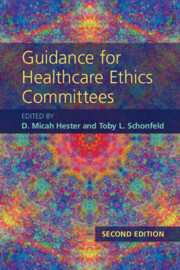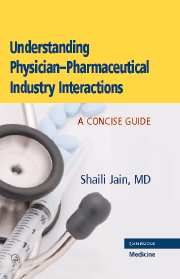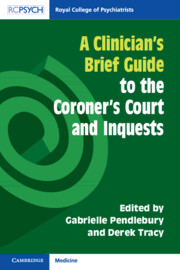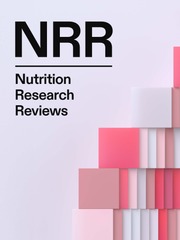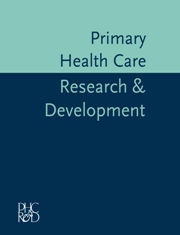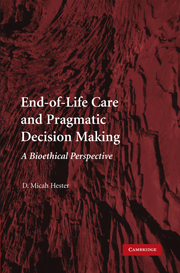Guidance for Healthcare Ethics Committees
Every accredited American hospital is required to have a process for handling ethical concerns within the institution. For the most part, hospitals satisfy this requirement by constituting an institutional healthcare ethics committee (HEC). However, many of these individuals, while well intentioned, have neither the training in ethics, nor the tools at their disposal to address properly the ethical considerations brought to them. Yet healthcare providers and patients turn to these committee members for ethical insight. This book focuses on HEC member education by providing definitive and comprehensive learning content for members of HECs. This second edition is fully updated throughout and adds new chapters that reflect the evolving nature of health care. Chapters are written by internationally recognized experts in bioethics and are directed specifically at members of HECs. Each chapter includes learning objectives, case presentations, and discussion questions to facilitate committee conversation.
- Includes conceptual, pragmatic and strategic discussion questions, stimulating individual comprehension and committee discussion
- Learning objectives for each chapter clearly identify educational goals
- Case studies make the content directly applicable to everyday practice
- New to this edition: social context of healthcare/racial disparities; moral distress; discharge challenges; disorders of consciousness and neurological death; neuroethics and neurodiversity; genetics; surgical ethics; psychiatric ethics; conscientious objection; quality assessment of HECs
Product details
March 2022Adobe eBook Reader
9781108848411
0 pages
This ISBN is for an eBook version which is distributed on our behalf by a third party.
Table of Contents
- Preface D. Micah Hester and Toby Schonfeld
- Part I:
- 1. Introduction D. Micah Hester and Toby Schonfeld
- 2. Brief introduction to ethics and ethical theory D. Micah Hester and Toby Schonfeld
- 3. Healthcare ethics committees and the law Stephen Latham
- 4. Understanding and addressing health disparities through a racial paradigm J. L. McCurdy and C. Y. Dupree
- 5. Cultural and religious issues in health care Alissa Hurwitz Swota
- 6. Moral distress Lucia Wocial
- Part II:
- 7. Ethics consultation mission, vision, goals, and process Georgina D. Campelia and Denise M. Dudzinski
- 8. A method of consultation D. Micah Hester
- 9. Informed consent Jessica Berg
- 10. Confidentiality and privacy: Traditional concerns and digital challenges Kenneth W. Goodman
- 11. Decision-making capacity Arthur R. Derse
- 12. Discharge challenges: Shifting from acute to chronic care Wayne Shelton
- 13. Surrogate decision making Thomas V. Cunningham
- 14. Advance care planning and end-of-life decision-making Nancy M. P. King and John C. Moskop
- 15. Potentially inappropriate treatment and medical futility Thaddeus Mason Pope
- 16. Cognitive dissonance and the care of patients with disorders of consciousness Joseph J. Fins
- 17. Ethical issues in reproduction Anne Drapkin Lyerly
- 18. Ethical issues in neonatology John D. Lantos
- 19. Ethical issues in pediatrics Douglas S. Diekema and D. Micah Hester
- 20. Neuroethics Paul J. Ford
- 21. Ethical issues in clinical genetics Thomas May, Kelly East, Whitley Kelley and Jana Craig
- 22. Challenging issues in surgical ethics: Intraoperative decision making, innovative surgery, and high risk operations near the end of life Darryl Schuitevoerder and Peter Angelos
- 23. Psychiatric ethics Cynthia M. A. Geppert
- Part III:
- 24. Conscientious objection Mark R. Wicclair
- 25. Ethics committees and distributive justice Nancy S. Jecker
- 26. Developing and implementing effective ethics policy Sabrina F. Derrington
- 27. Ethics in and for the organization Margaret Moon
- 28. The healthcare ethics committee as educator Kathy Kinlaw
- 29. Understanding ethics pedagogy Felicia Cohn
- 30. Quality assessment of healthcare ethics committees Katherine Wasson.

